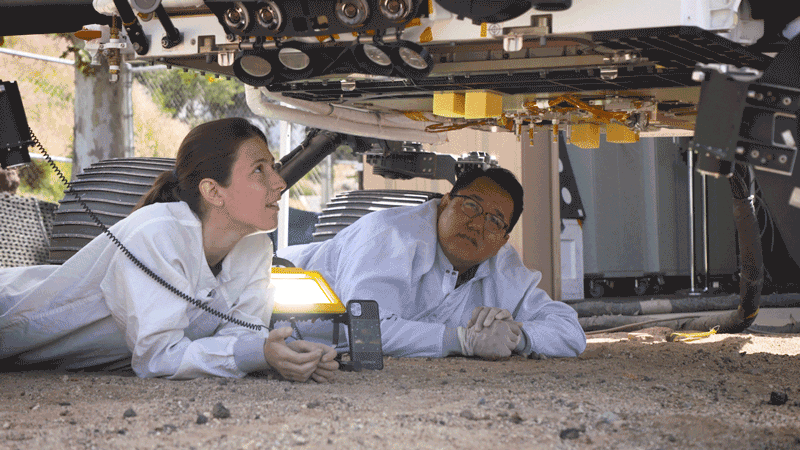Perseverance completes its deposit of 10 samples on Mars

selfie of perseverance with its 9th sample deposited (robotic arm erased)
By depositing a tenth sample taken from the surface of Mars, the Perseverance rover has finished building up a backup deposit, intended to be recovered by future Martian helicopters.
And ten. At the end of a meticulous six-week zigzag, the Perseverance rover deposited ten samples on the Martian soil that it collected during the first twenty months of its mission. The last tube, released on Sunday January 29, 2023, closes the operation. This consisted of setting aside a varied assortment of rocks, in case Perseverance suffered a breakdown in the future, preventing it from transporting the remaining samples and those it still intends to collect.

Eventually, the NASA rover must join the small rocket of the future Mars Sample Return mission, which will send its precious cargo to Earth laboratories. If he is no longer capable of it, Martian helicopters will replace him in this task.
“Overall, everything went as planned,” reports Baptiste Chide, planetary scientist at the Los Alamos National Laboratory (New Mexico) and member of the Perseverance scientific team. There were only two minor changes from the original plans. On the one hand, the place of deposit of the tenth sample was moved by a few meters because a 5 cm pebble was near the place initially planned. On the other hand, the sample named “Bearwallow” replaced “Hazeltop”, its twin sample. Each rock being taken in duplicate by Perseverance, the robot keeps within it a version of the samples it has just deposited.

Repetition of sample deposit with the full size replica of Perseverance.
Eight rocks and 2 atmospheres
Eight of these Martian test tubes contain a piece of rock of varying nature. An additional sample, called "Roubion" and deposited fourth, contains the Martian atmosphere, dating from the first failed sampling attempt in August 2021 . The last "Amalik WT" is a control tube, also filled with Martian atmosphere, but never having left the belly of Perseverance. "The control tubes will be used to measure the level, normally very low, of bacteria and organic matter brought by Perseverance itself", explains Baptiste Chide.
The winter having passed, the temperatures are rather lenient in the Jezero crater. Some -20°C during the day and -85°C at night. This bodes well for Ingenuity, its small helicopter companion, which has completed its 41st flight on Mars, while Perseverance prepares to climb the slopes of the delta of the river that once flowed into Jezero.

Places of deposit and names of the samples placed, from Malay to Amalik WT.
Source: websites

